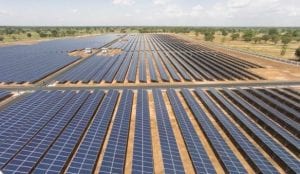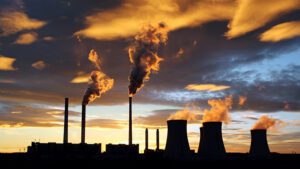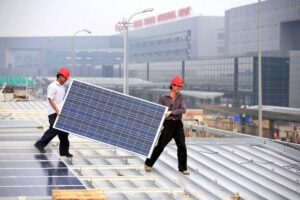A big ramp up of Megapack and Powerwall deliveries has helped electric vehicle and energy giant Tesla report record battery storage revenues in the third quarter, with CEO Elon Musk saying stationary storage will outstrip the growth in electric vehicles.
Musk said on Thursday morning (Australian time) that the transition to wind and solar would require significant amounts of battery storage to help deliver 24/7 power.
“We actually see the energy storage business growing more like – 150 to 200 per cent a year – faster than cars, faster by a lot,” Musk told an online briefing after the release of the company’s third quarter results.
The company earlier revealed its battery storage business – featuring the utility scale Megapack product and the household-scale Powerwall 2 product – grew 62 per cent in the third quarter (from the same period a year earlier) to a record 2.1 gigawatt hours.
“(That is) by far the highest level we have achieved,” the company said, adding this was despite challenges in the semi-conductor business that was affecting its energy and storage business more than its EV business.
“Demand for our storage products remains in excess of our ability to supply,” it said. “We are in the process of ramping production at our dedicated 40GWh Megapack factory in Lathrop, California, to address the growing demand.”
 The comments came as Tesla announced free cash flow of $US8.98 billion in the last 12 months, and record margins of more than 17 per cent, despite a slight fall in automotive margins to 27 per cent. Its quarterly profit was a record $US3.98 billion.
The comments came as Tesla announced free cash flow of $US8.98 billion in the last 12 months, and record margins of more than 17 per cent, despite a slight fall in automotive margins to 27 per cent. Its quarterly profit was a record $US3.98 billion.
Tesla said the record returns came despite massive investments in the Berlin and Texas gigafactories that are still ramping up, the 4680 battery cell production, preparation for the first delivery of the Tesla Semi, and production of the Cybertruck, and its work on AI.
“We are investing in everything we can possibly think of investing in, and we are still generating cash,” Musk said. “It’s a good place to be.”
Tesla has dominated the battery storage market, particularly in Australia where it has accounted for the bulk of completed batteries, including the country’s largest at the Victoria Big Battery, and the original “Tesla big battery” at the Hornsdale Power Reserve,
But it is facing increased competition, with BlackRock’s newly acquired start up, Akaysha Energy, this week winning the tender to build the 1680MWh Waratah Super Battery in NSW, the largest of its type in the world.
Still, the push for battery storage is gaining momentum in Australia – and overseas – with multiple gigawatt-scale battery storage projects unveiled in the last few months, many of them at the site of former and soon-to-closed coal fired generators.
These battery storage projects are playing multiple rules – in time shifting the output of wind and solar, and also providing essential grid services – such as frequency control, inertia and system strength – and grid security with the help of advanced inverters.
Musk said, however, that the current production of battery storage was just a fraction of what was needed for stationary storage and the rapidly growing electric vehicle market.
has achieved a big jump in battery storage installations in the third quarter, with record volumes of Megapack and Powerwall deliveries and promises by CEO Elon Musk for a dramatic rise in
He said his goal was to reach 1,000 gigawatt hours of annual battery storage production, but the world as a whole will need some 400 terawatt hours of battery storage to accommodate the shift to EVs on the roads and wind and solar on the grid.
That would require vast amounts of minerals, including lithium. He said it was essential to fast track the production, and environmental approvals, to boost the supply of lithium to the battery market.










